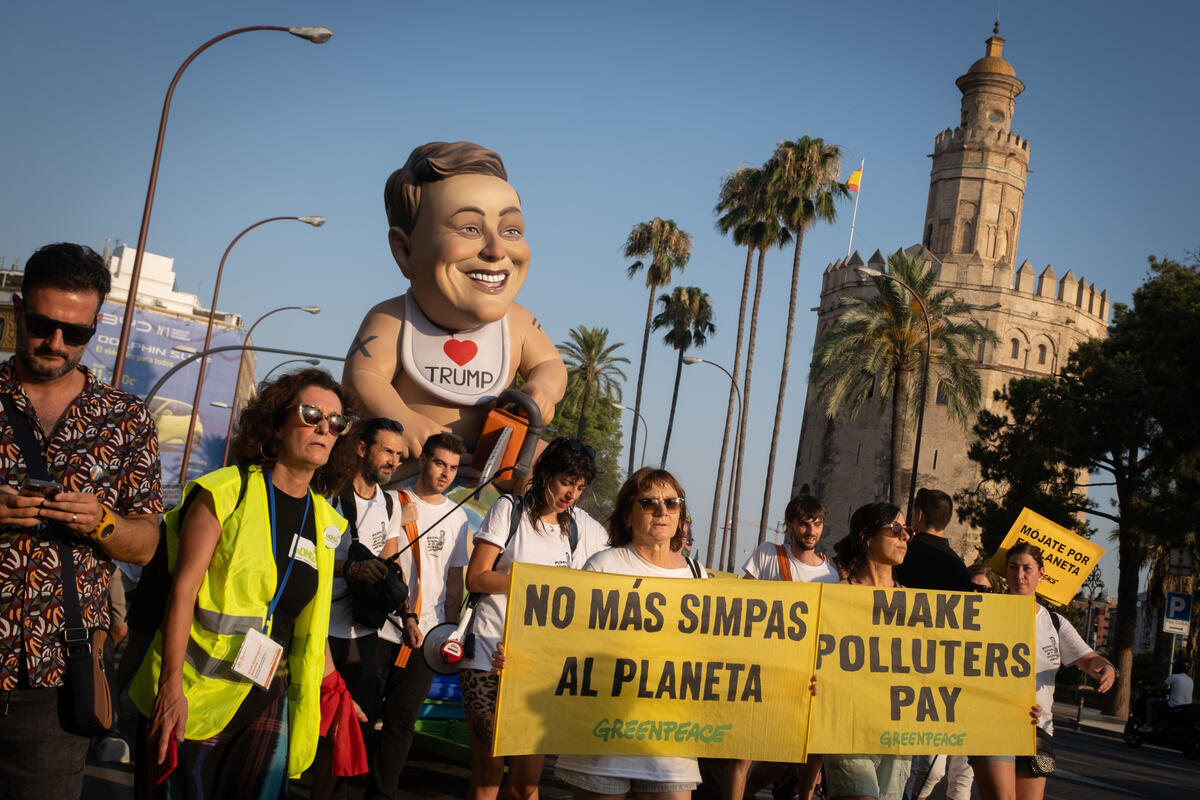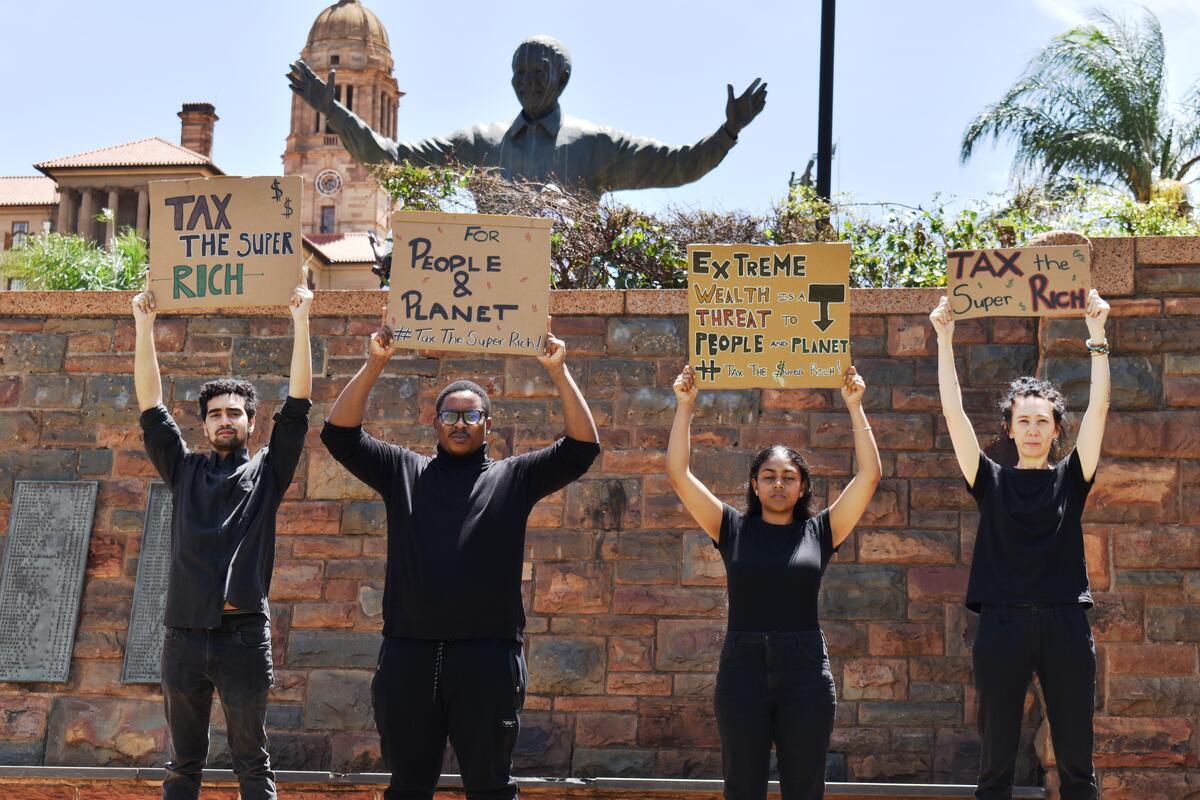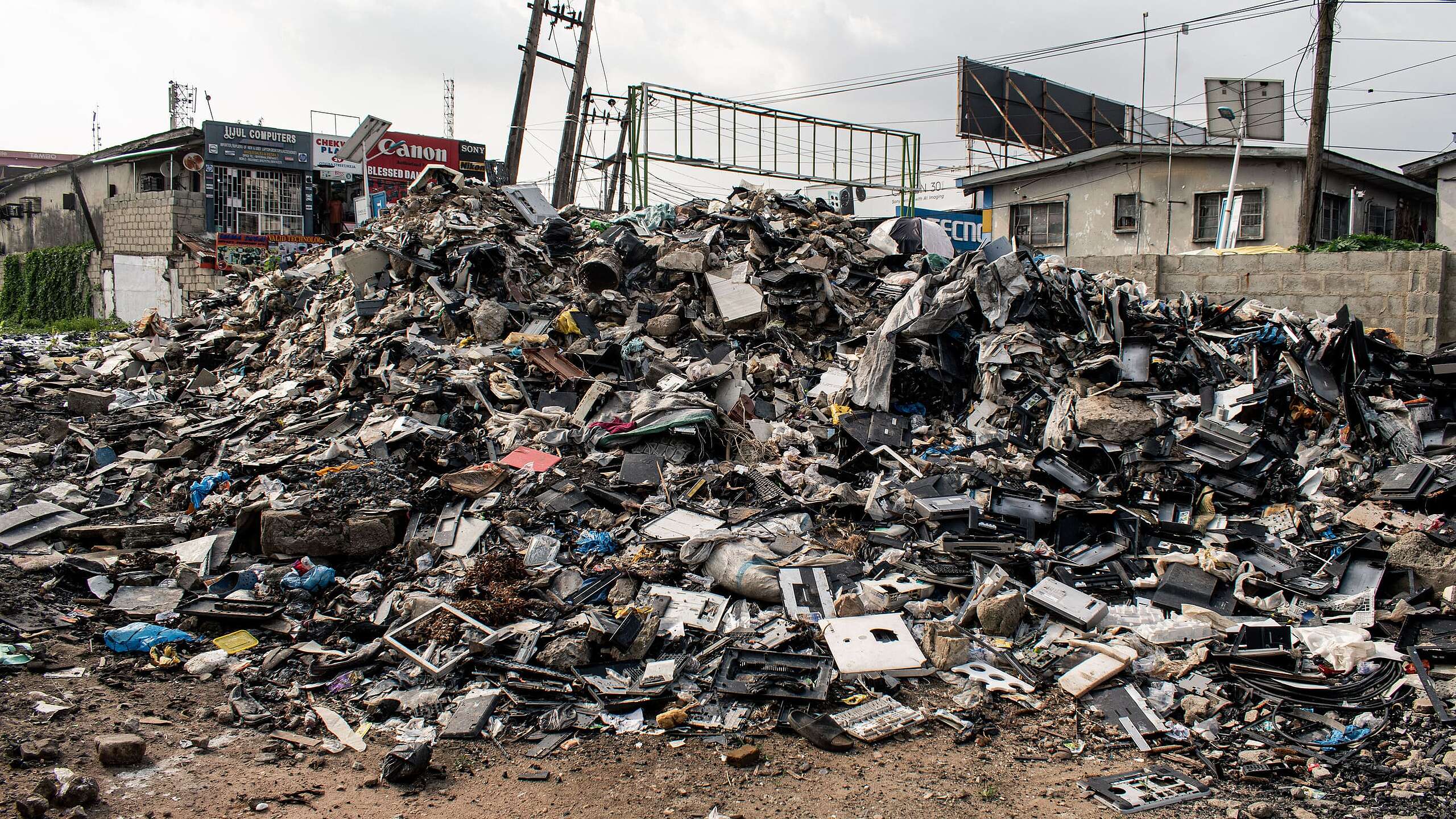

Youth Capital, in partnership with Greenpeace Africa have launched the #FundOurFutures campaign this Mandela Day, urging the Ministers of Finance and Basic Education to support funding the Presidential Employment Stimulus (PES). Against the backdrop of the load shedding crisis, which is exacerbating the youth unemployment crisis, the PES is set to lose its funding by March 2024. The programme is the largest ever public employment programme and has provided valuable work experience to over 1 million young and other vulnerable South Africans.
Kristal Duncan-Williams, Project Lead at Youth Capital, says, “We cannot and must not let the door close on this programme. The PES provides valuable and critical opportunities across the country, including areas where economic opportunities are very hard to find. It benefits unemployed youth and learners in schools and has the potential to really shift the needle on unemployment and literacy in a time where our country urgently needs it. ”.
Launched in November 2020 the PES is the largest ever public employment programme with 83% of its beneficiaries being youth. One of its programmes, the Basic Education Employment Initiative (BEEI), has placed over 750 000 young people in schools across the country, as teacher assistants and general assistants.
“With 9.1 million young people not in education, employment or training (NEET), public employment programmes such as the BEEI could help us shift the needle on youth unemployment”, adds Duncan-Williams.
The latest PIRLS study [1] revealed that 8 in 10 Gr 4 learners cannot read for meaning. We must therefore make sure that the funding continues for this programme as it provides learners and teachers with much-needed support. Furthermore, programmes like this provide the youth with valuable work experience to serve their communities and to thrive within the just transition to renewable energy.
“As a teaching assistant, I have gained so much experience, in terms of admin skills and taking care of children, through the training and online courses. It drew my aspiration of becoming a teacher and I will be pursuing my studies to be a teacher shortly…because it drew much inspiration for me to be part of the system again,” Phila Prince Msutu, beneficiary of the BEEI.
Social and public employment programmes have led young people into community services, like careers in early-childhood development and basic education, while also providing valuable extra human resources in these areas.
In future, they can also provide the youth with the skills and first work experiences needed to play a proactive role within the just energy transition. Greenpeace Africa has decided to join this campaign because South Africa’s load-shedding crisis, caused by our country’s reliance on coal, is making youth unemployment worse. They believe that a just transition to renewable energy is the best and most immediate solution to the electricity and youth unemployment crisis.
Thandile Chinyavanhu, Climate and Energy Campaigner for Greenpeace Africa, says, “A just and equitable future for people and the planet is possible for all of us. South Africa’s youth face the worst impacts of a country in crisis, and they also stand to benefit the most from a just transition. They have the potential to lead each other and their communities into a bright future.”
According to research published by Greenpeace in 2019, millions of renewable energy jobs can be created across the continent’s energy sectors by 2050. They, therefore, agree that social & public employment programmes are essential initiatives to prepare the youth for the imminent transition towards a low-carbon economy by promoting skills development and creating employment opportunities.
#FundOurFutures calls for young people, schools and the broader community to sign the letter to the Minister of Finance and the Minister of Basic Education, to share their experiences as beneficiaries of the programme across all social media platforms and engage Youth Capital and national government about how this programme is making a difference in the lives of young people, learners and schools.
ENDS
Notes to the editor:
[1] The latest PIRLS study can be accessed here.
[2] Greenpeace Arica’s report, Employment Effects of a Global Energy Transition, can be accessed here.
Contact details:
To arrange an interview or for further information, contact
Kristal Duncan-Williams
[email protected] or +27 72 904 0673.
Chris Vlavianos,
Greenpeace Africa Communications Officer,
+27798837026, [email protected]



